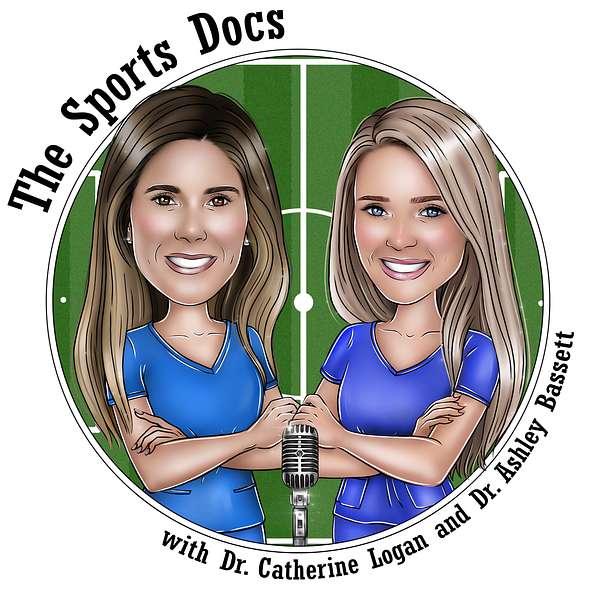
The Sports Docs Podcast
Sports medicine is a constantly evolving field, with hundreds of new articles published each month on the topic. This ever-growing wealth of information can make it challenging to stay updated on the newest approaches and techniques, and to know which data should actually change your practice. Join orthopedic surgeons, Dr. Catherine Logan and Dr. Ashley Bassett, as they chat about the most recent developments in sports medicine and dissect through all the noise.
On each episode of The Sports Docs podcast, the hosts will tackle a specific injury – from ACL tears to shoulder instability – and review the top research from various high-impact journals that month, including The American Journal of Sports Medicine, Arthroscopy: The Journal of Arthroscopic and Related Surgery, Sports Health, Journal of Shoulder and Elbow Surgeons, and more. The Sports Docs will also be joined by experts in the field of sports medicine – orthopedic surgeons, nonoperative sports medicine specialists, athletes, physical therapists, athletic trainers and others – to provide a fresh and well-rounded perspective based on their unique experiences.
The Sports Docs – Dr. Logan & Dr. Bassett – are friends & former co-residents from the Harvard Combined Orthopaedic Residency Program, who went onto esteemed sports medicine fellowships at The Steadman Clinic and The Rothman Institute, respectively. Dr. Logan practices in Denver, CO, and serves as Team Physician for Men's USA Lacrosse & as a Team Physician for U.S. Ski & Snowboard. Dr. Bassett is the director of the Women’s Sports Medicine Center at the Orthopedic Institute of New Jersey and practices across northern NJ, primarily in Morris and Sussex Counties.
Together, they will bring monthly conversations on how to care for athletes of all ages and levels of play, with a healthy mix of cutting-edge science and real-world application.
The Sports Docs Podcast
115: Overtime – Tranexamic Acid for Rotator Cuff Repair
Today, we’re talking about the use of tranexamic acid or “TXA” for rotator cuff repair surgery. First, what is TXA? If you’re not an arthroplasty surgeon or a traumatologist, you may not be as familiar with this medication. TXA is drug that inhibits the enzymatic breakdown of fibrin blood clots, also known as fibrinolysis. By doing this, TXA stabilizes the thrombi, or blood clots, and thus decreases bleeding. TXA was originally developed to treat postpartum hemorrhage but its use has evolved over the years. It is now often used perioperatively in the setting of elective surgery to reduce blood loss, blood transfusions, ecchymosis, and hematoma formation.
In the field of orthopedics, use of TXA has traditionally been limited to big open surgeries where large volume blood loss is a concern, such as total joint replacement, fracture fixation and spine procedures. However, sports medicine procedures that rely extensively on visual clarity of the surgical field, such as knee and shoulder arthroscopy, can also greatly benefit from the use of TXA. By lessening intraoperative bleeding, TXA may result in better visualization of the surgical field, potentially decreasing operative time and subsequent postoperative swelling and pain. That is the clinical question that our paper today aimed to investigate. The article that we are reviewing is titled “Tranexamic Acid for Rotator Cuff Repair: A Systematic Review and Meta-analysis of Randomized Controlled Trials.”